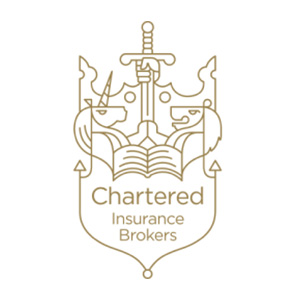
Professional Indemnity insurance experts
We provide tailored insurance solutions to ensure you have the right support and coverage needed to navigate the challenge confidently. Our comprehensive approach allows you to focus on delivering exceptional service, knowing that your business is protected against unexpected liabilities.
Leveraging a deep understanding of your business needs, we share bespoke solutions that work for you.
Our comprehensive approach allows you to focus on delivering exceptional service, knowing that your business is protected against unexpected liabilities. With over 90 years’ experience, we’re experts in:
- Approved Inspectors Professional Indemnity
- Architect Professional Indemnity
- Consulting Engineer Professional Indemnity
- Design and Construction Professional Indemnity
- Insurance Brokers Professional Indemnity
- Solicitors Professional Indemnity
Whether you offer clients guidance, consulting services, or manage their data, our Professional Indemnity insurance mitigates risks so you can deliver your work with confidence.
Prefer to talk? Get in touch with our experts today
Call us on 0151 236 5656What is Professional Indemnity insurance?
Professional Indemnity insurance protects professionals and their businesses in the event of claims made by a client or third party suggesting that they have suffered loss as a result of non-performance, breach of contract or professional negligence in the services provided. The policy covers any expenses in the defence of a claim and provides the ultimate safety net when all else fails.
Who needs Professional Indemnity insurance?
If your business sells knowledge or skill, such as providing advice, design, specifications, supervision etc., you have a responsibility and duty of care to your client, and third parties, through the services and expertise you provide.
Many professions are required to have Professional Indemnity (PI) insurance cover as a regulatory requirement or as part of their professional authorisation. This includes Solicitors, Accountants, Architects, Surveyors, Mortgage Intermediaries, Insurance Brokers, and Financial Advisers. Many consultants including Consulting Engineers, Advertising and PR Agencies, and Designers also choose to have this type of insurance to meet client requirements and to benefit from financial protection in the event of a claim arising.
The duty of care owed is generally the exercise of ‘reasonable skill and care’, in the discharge of the services provided. If a professional fails to exercise this duty (i.e. is negligent) they may be liable for losses incurred by their client, and/or third parties. Taking into account the operation of the current legal system, even defending claims can be very costly.
PI cover is for the benefit of the professional and not the client, although, far too often, it is not viewed that way. Clients cannot generally claim directly against the PI insurance carried by professionals – they must prove liability first, a legal process which can be time-consuming, expensive and uncertain.
Why choose Griffiths & Armour?
We believe in building great client relationships. To us, it’s people that count. By taking the time to understand the bigger picture, we develop mutually beneficial, trusted partnerships.
Together, we manage and transfer your risk effectively, to protect and support the wider success of your business.
Our work is about giving you peace of mind through the right protection, and if the unexpected occurs, our highly qualified team will be ready, providing vital support when you need it most.
We’re supported in this by our Professional Risks Client Services Board, the function of which is to support and complement our existing structures with a singular focus on maintaining and developing our client service proposition.
Beyond Protection
Beyond Protection is our end-to-end support designed to empower your business at every stage.
Our team gives you the tools to increase resilience and create peace of mind, no matter the challenge.
Contract Review Service
We help you make informed decisions on mitigating contractual risks. Our team of experienced brokers and contract reviewers provide specialist advice on all types of construction contracts, from standard forms to bespoke documents, letters of reliance through to Novation agreements.

Legal Helpline
Griffiths & Armour offers a legal helpline providing direct access to sector-specific expert solicitors for our clients with Professional Indemnity insurance.
With offices across the UK and Ireland, you can receive immediate legal advice on issues like negligence allegations, draft agreements, and commercial disputes at no additional cost.
Professional body relationships
Griffiths & Armour works with a number of professional bodies and organisations, both to support our clients’ interests and also to build our own knowledge base and profile with regards to important issues in the construction industry.
FAQs
Professional Indemnity insurance – also known as PI insurance or PII – is intended to protect professionals and their businesses in the event of claims made by a client (or third party) suggesting that they have suffered loss as a result of non-performance, breach of contract and/or professional negligence in the services provided.
In addition, the policy will cover legal and other costs and expenses incurred in the defence of any claim. Professional Indemnity insurance provides the ultimate safety net when all else fails. However, like any other safety net, its use should be avoided as much as possible.
Personal liability attaches where a practice operates as either a sole proprietor or a partnership. In the case of a Partnership, liability is joint and several. Even when a practice ceases to operate, these personal liabilities do not come to an end, but continue for the limitation periods in contract and tort. Corporate bodies assume liability in their own right although individuals within such organisations can attract personal liabilities in certain instances.
Professional Indemnity insurance operates on what is known as a ‘claims made’ basis. This means that it is the policy in force at the time the claim is notified which will operate, irrespective of when the work was actually undertaken or when the alleged act of professional negligence took place.
The ability of clients or third parties to bring claims many years after services are complete (subject to the relevant limitation periods) emphasises the importance of maintaining appropriate and effective cover not only when the project is being undertaken but also for a number of years into the future.
Initially, any potential claimant must prove professional negligence on the professional’s behalf (i.e. a failure to exercise reasonable skill and care in the discharge of its services). A claim can be brought in contract or tort/idelict (i.e. common law). It is often more difficult to succeed in a claim in tort as the following tests must be satisfied:
- The plaintiff must prove that the professional owed him a duty of care
- The plaintiff must prove that the professional has breached that duty
- The plaintiff has suffered financial loss as a direct result of that breach
If an allegation of professional negligence is upheld, the professional is likely to be liable for the losses incurred by the plaintiff which arise as a reasonably foreseeable consequence of their actions. The professional will often be responsible for the plaintiff’s legal costs and these can be substantial. Large sums of money are often spent simply trying to recover fairly minor losses.
Direct financial losses (economic and consequential loss) as opposed to the cost of rectifying a defect are implicit under contract unless specifically excluded. There is more of a grey area arising out of the question of liability for economic and consequential loss at common law although recent judgements have allowed such losses to be recovered.
Professional Indemnity insurance provides only limited cover against the consequences of claims for professional negligence. Unless contractual limitations have been agreed between the professional and his client, the professional’s liability:
- Is unlimited in amount, and;
- Extends over a considerable period of time
Professional Indemnity insurance, by contrast:
- Will have a set limit on the amount that insurers will pay – the limit of indemnity
- Operates for a set period of time – the period of insurance
- Is subject to the policy terms, conditions, limitations and exclusions
- Operates on a claims made basis
The limit of indemnity is the maximum amount that can be claimed from insurers for the professional’s liability to pay claimant damages. Generally, cover for defence costs payable in addition to the limit of indemnity can be secured. It is important to note that disclosing the limit of indemnity to a client does not lead to a limitation of liability, which can only be achieved by negotiating a specific financial cap as part of the professional’s appointment.
The limit of indemnity generally operates in one of two ways:
- Each and every claim cover – this means that the indemnity limit applies separately to each claim that is made under the policy. However, all claims arising from the same occurrence would be regarded by insurers as one claim
- Aggregate cover – the limit of indemnity would apply as one single amount for all claims made in each period of insurance
Policies operating on an each and every basis, would still normally apply in respect of:
- Pollution/contamination claims
- Claims brought in American or Canadian courts







